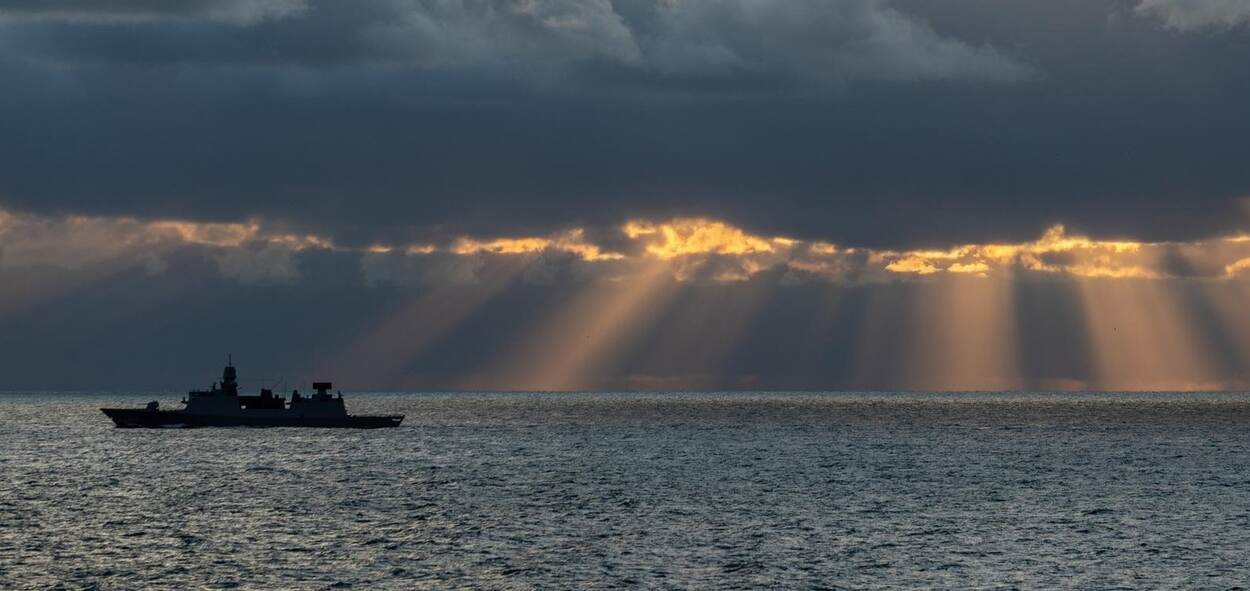The North Sea is becoming increasingly important for the Netherlands due to its growing use. A large part of our energy will soon be generated there. Meanwhile, the willingness to harm our vital interests is growing. The risk of attacks is increasing, as we have seen with the sabotage of the Nord Stream gas pipelines in the Baltic Sea. These are signs that our energy and data infrastructure is vulnerable. This means we need to take additional measures to maintain and enhance our resilience at sea.
What is maritime security?
Maritime security encompasses all measures to protect people, objects, and goods at sea from malicious actions. The goal is to prevent, detect, and counter threats such as terrorism, piracy, smuggling, sabotage, and unwanted foreign interference.
Image: Ministerie van Defensie
Reliable information provision and digitalization are indispensable
Within maritime security, ministries and implementing organizations like Rijkswaterstaat have various responsibilities. Developments are progressing rapidly, causing the government to take on new tasks and making existing tasks more complex.
Reliable information provision and digitalization are indispensable to carry out these tasks and to strengthen the resilience of the Netherlands at sea. The Central Information Provision (CIV) of Rijkswaterstaat collects important data on the North Sea and provides it to organizations responsible for maritime security, such as the Coast Guard and the Ministry of Defense. This information is essential to ensure that vital processes run safely and efficiently.
Ready for the future
The demand for reliable information and digitalization will continue to grow in the coming years. Therefore, Rijkswaterstaat continues to invest in technologies and systems that align with today's and tomorrow's risks and needs. We are constantly developing new measures to enhance our resilience at sea, ensuring that the North Sea remains safe and in good hands.
Read more?
- The protection of Critical Infrastructure according to the National Coordinator for Security and Counterterrorism.
- Report ‘The High Value of the North Sea’ (The Hague Centre for Strategic Studies)
- The EU Maritme Security Strategy en het bijbehorende Action Plan
- Tasks of the Coast Guard for Maritime Security
- Action plan Strategy for the protection of North Sea Infrastructure (Dutch)
- Interview about security risks in the North Sea
